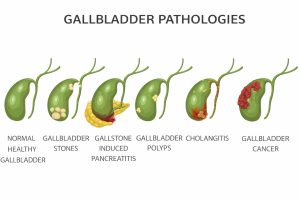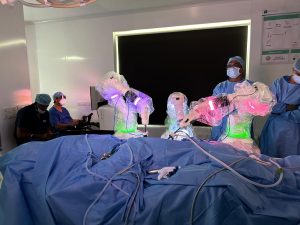What is GERD? GERD is a condition when the stomach acid frequently flows back into the tube connecting the mouth and stomach. This backflow also referred as acid reflux irritates the lining of one’s esophagus. Acid reflux happens because of a valve at the end of the esophagus, the lower esophageal sphincter does not close properly when the food arrives the stomach, hence causing backwash through your esophagus into the throat and mouth giving a sour taste. Many people experience GERD in different patterns. The discomfort caused by GERD can be addressed by small lifestyle changes, however prolonged symptoms would require a doctor’s intervention. If left unattended chronic inflammation of esophagus can lead to serious ailments.
How does one identify symptoms?
Consciously observe your body and ask yourself the below questions:
Do I have a heart burn after my meals?
Do I feel slight chest discomfort or pain?
Do i have difficulty in swallowing food or feel choked while eating or drinking?
Do I have a sensation of a lump in my throat?
Do I experience regurgitation?
Do I have vomiting sensation?
Do I experience dry cough or bad breath?
If you experience one or more of the above symptoms frequently then we recommend you consider a visit to your gastroenterologist.
How common is GERD?
GERD conditions are quite common. Heartburn conditions occur to all of us at some point in our lives. Some common category of people who tend to have GERD conditions are
Obese people
Pregnant women
Smokers
People undergoing medication that cause acid reflux.
Dr.Srikanth Gadiyaram, from Sahasra hospital says,” for majority of the population GERD can be prevented or controlled through lifestyle changes. Especially after the age of 40 when the body is not going to behave like your 20’s it’s time we watch the kind of food we consume and the lifestyle we follow”.
A quick guide from our gastroenterologists from the Sahasra Hospital on food to eat and avoid for GERD conditions:
If you are having symptoms of GERD then keep yourself away from food items like:
Fast food / fried food
Pizza
Processed snacks
Very spicy food
Fatty meats
Cheese/ sour cream/ ice cream
processed sauces
citrus fruits/ juices
Carbonated Beverages
Oily food / sweets
Liquor
So, were these food items on your favourite food list? Are you going to miss them if we ask you to stop eating them? Let us not be harsh on ourselves, but don’t forget to be mindful either. It is allowed to consume food from the above list once in a while, keeping a check on the frequency and quantity we consume. Even when you consume these food items once in a while consider consuming them during the day time in small potions at regular intervals and not late in the evening or before bedtime so that the food does not stay in your stomach and cause irritation. Also potion your meal and do not over eat at any given point in time.
A pizza with soda on a Friday night sounds fun, but the discomfort that it could cause to your system is definitely not worth this short-term thrill. So, think before you consume food that your body would not accept.
Now let’s get to the happy part where we talk about what do we eat to prevent acid reflux. Next time you visit the nearby super market make a conscious effort to pick up the right food for your body type.
Sharing below are a few items that you can add to cart:
Food rich in fibre – pick up oatmeal, brown rice, root vegetables, greens.
Alkaline rich food – Banana, Melon, difference kids of nuts, avocado, basil, red onion.
Food high in water content: Cucumber, lettuce, watermelon, herbal tea, broth, apple, tomato, zucchini.
Make a conscious effort in adding these items to your diet and in portioned quantities so that GERD is kept at bay.
However, if you witness heartburn two or more times a week even after changing your diet and monitoring your lifestyle pattern then we recommend your consult a doctor.
A gastroenterologist can assist you in measuring the acidity in your stomach and let you know if frequent acid reflux has damaged your esophagus.
GERD is mostely treated with a combination of lifestyle changes and medication. But if you fail to observe changes then we at Sahasra Hospital are there to help you with further treatment recommendations.
One quick tip that will help you improve your lifestyle:
The best way to consciously make a change is by journaling it. Every time you witness a food item that causes discomfort write it down. This way you can have a record of food items that does not go well with your system. This will help you to following a healthy and well balance eating habit.




